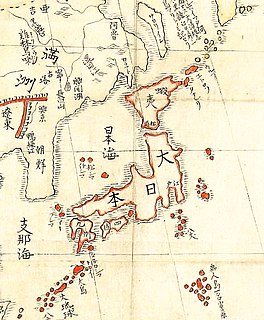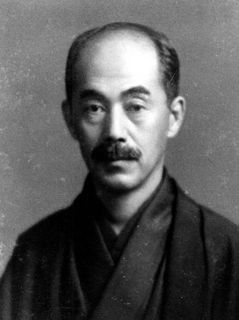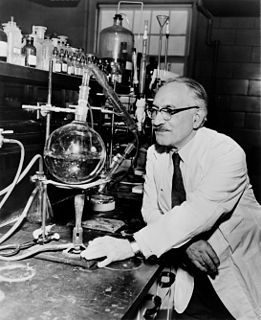Related Research Articles

Shogun was the title of the military dictators of Japan during most of the period spanning from 1185 to 1868. Nominally appointed by the Emperor, shoguns were usually the de facto rulers of the country, though during part of the Kamakura period shoguns were themselves figureheads. The office of shogun was in practice hereditary, though over the course of the history of Japan several different clans held the position. Shogun is the short form of Sei-i Taishōgun, a high military title from the early Heian period in the 8th and 9th centuries; when Minamoto no Yoritomo gained political ascendency over Japan in 1185, the title was revived to regularize his position, making him the first shogun in the usually understood sense.

Kunio Yanagita was a Japanese author, scholar, and folklorist. He began his career as a bureaucrat, but developed an interest in rural Japan and its folk traditions. This led to a change in his career. His pursuit of this led to his eventual establishment of Japanese native folkloristics, or minzokugaku, as an academic field in Japan. As a result, he is often considered to be the father of modern Japanese folklore studies.
Sinology or Chinese studies, is an academic discipline that focuses on the study of China primarily through Chinese philosophy, language, literature, culture and history and often refers to Western scholarship. Its origin "may be traced to the examination which Chinese scholars made of their own civilization."

Selman Abraham Waksman was a Russian Empire-born Jewish-American inventor, biochemist and microbiologist whose research into the decomposition of organisms that live in soil enabled the discovery of streptomycin and several other antibiotics. A professor of biochemistry and microbiology at Rutgers University for four decades, he discovered a number of antibiotics, and he introduced procedures that have led to the development of many others. The proceeds earned from the licensing of his patents funded a foundation for microbiological research, which established the Waksman Institute of Microbiology located on the Rutgers University Busch Campus in Piscataway, New Jersey (USA). In 1952, he was awarded the Nobel Prize in Physiology or Medicine for "ingenious, systematic and successful studies of the soil microbes that led to the discovery of streptomycin." Waksman and his foundation later were sued by Albert Schatz, one of his PhD students and first discoverer of streptomycin, for minimizing Schatz's role in the discovery of streptomycin.
Cathleen Synge Morawetz was a Canadian mathematician who spent much of her career in the United States. Morawetz's research was mainly in the study of the partial differential equations governing fluid flow, particularly those of mixed type occurring in transonic flow. She was professor emerita at the Courant Institute of Mathematical Sciences at the New York University, where she had also served as director from 1984 to 1988. She was awarded the National Medal of Science in 1998.
Francis Christopher Rowland Robinson CBE, DL, FRAS is a British historian and academic who specialises in the history of South Asia and Islam. Since 1990, he has been Professor of History of South Asia at the University of London. He has twice been president of the Royal Asiatic Society: from 1997 to 2000, and from 2003 to 2006.
Ping-ti Ho or Bingdi He, who also wrote under the name P.T. Ho, was a Chinese-American historian. He wrote widely on China's history, including works on demography, plant history, ancient archaeology, and contemporary events. He taught at University of Chicago for most of his career, and was President of the Association for Asian Studies in 1975, the first scholar of Asian descent to have that honor.

Timothy James Brook is a Canadian historian, sinologist, and writer specializing in the study of China (sinology). He holds the Republic of China Chair, Department of History, University of British Columbia.
Mark James Hudson is a British archaeologist interested in multicultural Japan. His initial areas of specialization were the Jōmon period and the Yayoi period. His later research has focused on areas of Japan outside state control, primarily islands and mountains. He excavated the Nagabaka site on Miyako Island.

A prisoner is a person who is deprived of liberty against their will. This can be by confinement, captivity, or forcible restraint. The term applies particularly to serving a prison sentence in a prison.

Andrew J. Nathan is a professor of political science at Columbia University. He specializes in Chinese politics, foreign policy, human rights and political culture. Nathan attended Harvard University, where he earned a B.A. in history, an M.A. in East Asian Studies, and a Ph.D. in Political Science. He has taught at Columbia University since 1971, and currently serves as the chair of the steering committee for the Center for the Study of Human Rights. His previous appointments include as the chair of the Department of Political Science (2003–2006), and chair of the Weatherhead East Asian Institute (1991–1995).

John Curtis Perry also known as John Perry is an East Asian and Oceanic studies professor and historian. He is the Henry Willard Denison Professor Emeritus of History at the Fletcher School of Law and Diplomacy, Tufts University. He was also the director of that school's Maritime Studies program and founding president of the Institute for Global Maritime Studies, until his retirement in 2014.

Yang Lien-sheng who often wrote under the name L.S. Yang, was a Chinese-American sinologist and professor at Harvard University. He was the first full-time historian of China at Harvard and a prolific scholar specializing in China's economic history.

Tsien Tsuen-hsuin, also known as T.H. Tsien, was a Chinese sinologist and librarian who served as a professor of Chinese literature and library science at the University of Chicago, and was also curator of its East Asian Library from 1949 to 1978. He is known for studies of the history of the Chinese book, Chinese bibliography, paleography, and science and technology, especially the history of paper and printing in China, notably Paper and Printing, Volume 5 Pt 1 of Joseph Needham's Science and Civilisation in China. He is also known for risking his life to smuggle tens of thousands of rare books outside of Japanese-occupied China during World War II.
Evelyn Sakakida Rawski is Distinguished University Professor in the Department of History of the University of Pittsburgh and a scholar in Chinese and Inner Asian history. She was born in Honolulu, Hawaii, United States of Japanese-American ancestry. She served as president of the Association for Asian Studies in 1995–1996.
Franz H. Michael (1907–1992) was a German-born American scholar of China, whose teaching career was spent at University of Washington, Seattle, and at Georgetown University in Washington, D.C. Michael's research began with publications concerning the Manchus in China, the Qing dynasty and the Taiping Rebellion against it. He also studied Tibet and Inner Asia, and the tradition of authoritarian government in China, including the People's Republic of China. The themes of despotism, cultural synthesis or assimilation, and the modern fate of Confucian humanism shaped the choice of topics in Michaels' academic work and public advocacy, and his experience in 1930s Germany directly influenced his anti-totalitarian and anti-communist stance.
Robert E. Hegel is an American sinologist specializing in the fiction of late imperial China. He taught at Washington University, St. Louis, from 1975 until his retirement in the spring of 2018 and was made Liselotte Dieckman Professor of Comparative Literature and Professor of Chinese in 2006.
Susan Louise Mann is an American historian of China best known for her work on the Qing dynasty and the role of women and gender in Chinese history. She was professor of History at University of California, Davis from 1989 until her retirement in 2010.
Marcia Alper Ascher was an American mathematician, and a leader and pioneer in ethnomathematics. She was a professor emerita of mathematics at Ithaca College.
Verta Ann Taylor is a professor of sociology at the University of California, Santa Barbara, with focuses on gender, sexuality, social movements, and women's health.
References
- ↑ Kam Louie, Morris Low (2003). Asian Masculinities: The Meaning and Practice of Manhood in China and Japan. Routledge. p. 81. ISBN 0-415-29838-5.
- ↑ "Faculty, staff honored for years of service". 2006-05-30. Retrieved 2008-03-02.
- ↑ Byron Marshall; Roden, Donald T. (Winter 1982). "Schooldays in Imperial Japan: A Study in the Culture of a Student Elite by Donald T. Roden". Journal of Japanese Studies. 8 (1): 205–208. doi:10.2307/132287. JSTOR 132287.
- ↑ Henry D. Smith II (November 1981). "Schooldays in Imperial Japan: A Study in the Culture of a Student Elite by Donald T. Roden". The Journal of Asian Studies. 41 (1): 156–157. doi:10.2307/2055643. JSTOR 2055643.
- ↑ Edward R. Beauchamp (1982). "Schooldays in Imperial Japan: A Study in the Culture of a Student Elite by Donald T. Roden". Bulletin of the School of Oriental and African Studies, University of London. 45 (3): 625–626. doi:10.1017/s0041977x00042051. JSTOR 614972.
- ↑ Amazon.com: Donald F. Roden: Books